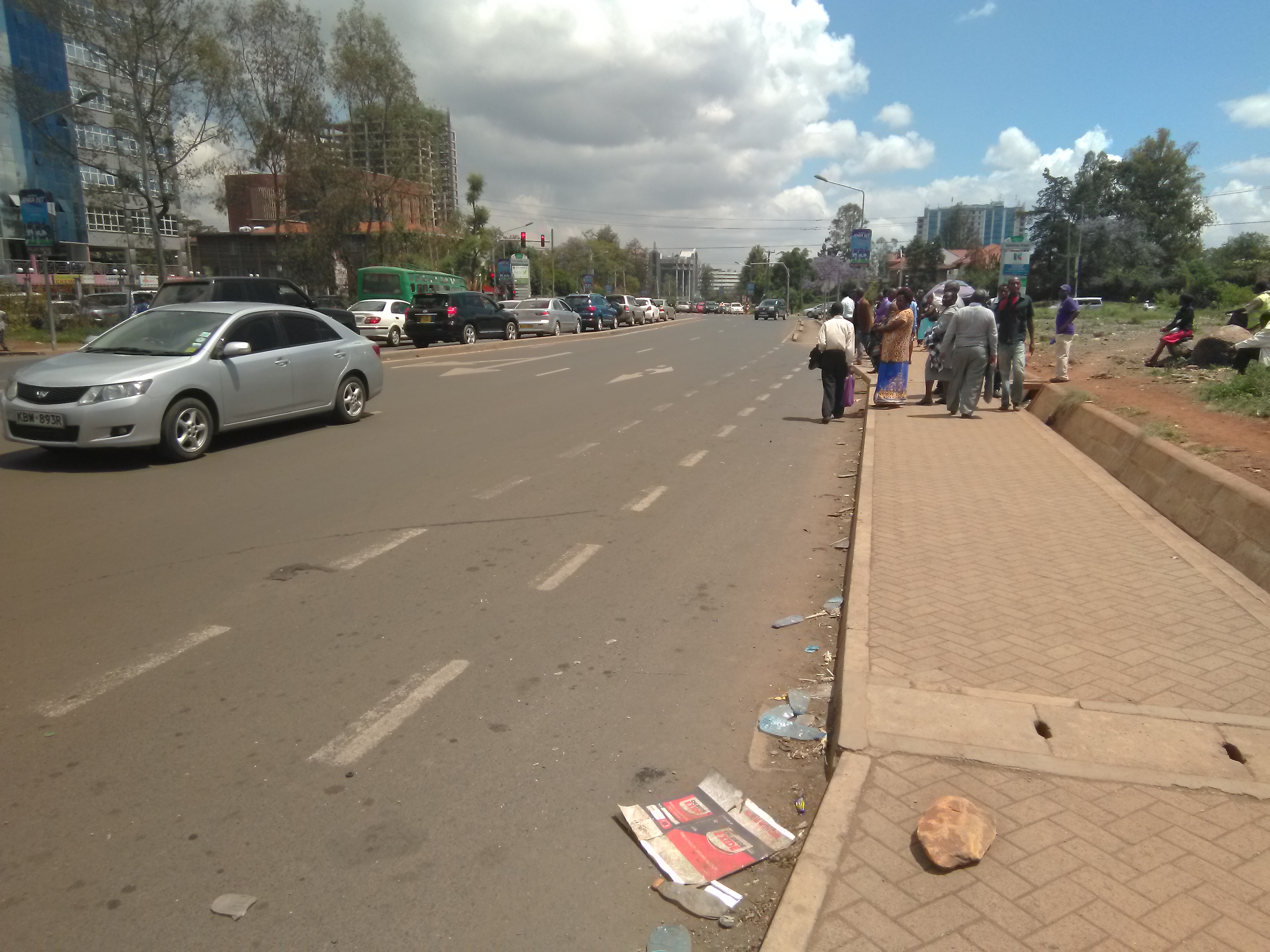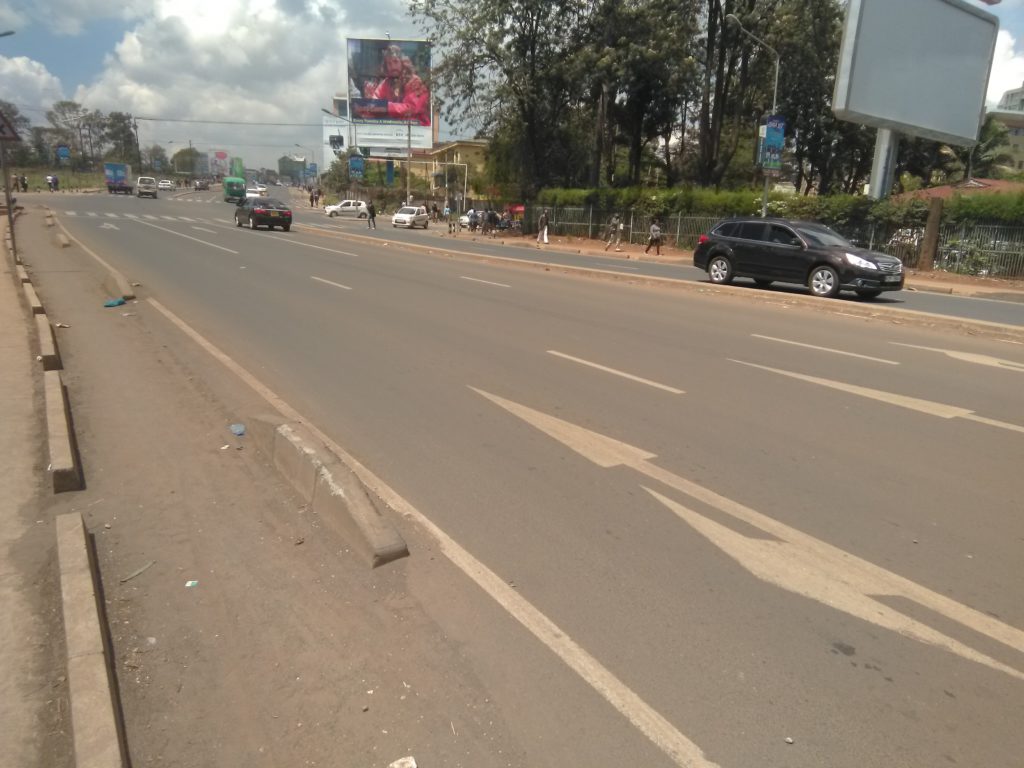Kenyans stranded as public service transport operators down tools

By Fauxile Kibet
NAIROBI: Kenyans Monday woke up to a transport crisis as public transport operators popularly referred to as “Matatus”, kept off the roads in protest to a crackdown by police.
On Friday, Interior Cabinet Secretary Fred Matiang’i directed that police enforce strict road safety rules and regulations know as “Michuki rules”, which were first set by Kenya’s former Transport minister the late John Michuki.
The rules require matatu crew to have specific uniform, wear identification tags and that public transport vehicles be fitted with safety belts, speed governors and a yellow strip to identify them from the rest of the motor vehicles.
But the federation of Public Transport operators contested the directive saying that they will only return to work after their grievances have been addressed.
“We have written to the Ministry of Transport asking them to clarify on a section of the set requirements. We will only return to work after all our grievances have been addressed,” said Federation’s chairman Edwin Mukabana.
“We would like to advise our members to withdraw transport service provision on Monday November 12, 2018 for the purpose of aligning our operations to the new guidelines,” he added.
But government officials including the country’s Transport Permanent Secretary Karanja Kibicho and Inspector General of police Joseph Boinett maintained that the countrywide crackdown was aimed at restoring sanity on Kenyan roads.
The government Monday announced an increase in rail transport frequencies to mitigate the crisis caused by striking public transport vehicles.
“To ensure the public will continue with their day-to-day activities in Nation Building, Kenya Railways Corporation is hereby directed to increase the number of frequency of commuter trains on all routes and also to reduce fare by 100% until the normal public service transport services resume,” a statement sent to newsrooms by Kenya’s Transport Cabinet Secretary James Macharia read.
ROAD CARNAGE
The directive came following rising cases of raod accidents in the East African country, with from the National Transport and Safety Authority (NTSA) showing that at least have 2585 people lost their lives between January and November this year
This year’s statistics marked an increase from 2331 deaths in 2017 over the same period.
NTSA director-General Francis Meja revealed that 92 per cent of the accidents were as a result of human error and negligence, while vehicles’ mechanical faults accounted for five percent and environment issues caused three percent of the accidents. Other factors include speeding and drunken driving.
Last month, a road accident at Fort Ternan, Kericho involving a Kakamega-bound 63-seater bus claimed the lives of more than 50 lives. The driver of the speeding bus is said to have lost control of the vehicle before rolling several times and landing in a ditch.
On Sunday, a dawn accident killed two people and left 9 others seriously injured in Athi River, near the Kenyan capital Nairobi.
According to police, the accident involved a lorry and a bus belonging to Mash Poa Company, which was heading to Nairobi from Mombasa. Athi River County Commander David Juma says five people were rushed to hospital for treatment.
Kenya’s Traffic Commandant Samuel Kimaru while affirming police’s readiness to implement the rules warned Matatu operators who have not met the requirements to act appropriately or “keep their vehicles at home”.

This is not the first time Kenya is facing a public service crisis as the government and Public Transport operators have been at loggerheads over implementation of strict traffic rules.
However, often, these crackdowns last a few weeks before normal routine resumes, largely blamed on low police motivation and corruption – where matatu operators bribe their way out, whenever their vehicles are impounded for violating traffic rules.
It now remains to be seen whether the current operation will yield the desired results or it will just be another knee-jerk reaction by government following recent accidents and the upcoming Christian Christmas holidays.